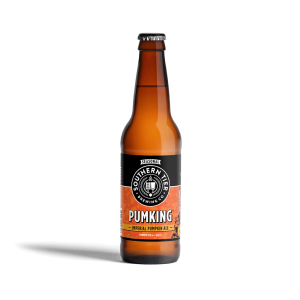If you already thought Outlook’s text predictions were creepily on-point, welcome to the even-weirder future. Business leaders at Davos, such as Coursera CEO Jeff Maggioncalda, admitted they’re utilizing the generative AI app ChatGPT to compose emails from scratch.
It’s not just CEOs who are using ChatGPT. Job applicants are writing cover letters with it — and fooling recruiters.
Still, there’s a productive and ethical way to deploy this powerful new technology in business. For example, Maggioncalda told CNN he uses it “as a writing assistant and as a thought partner,” not as a substitute for all thought and effort. (And just for the record, humans composed all the words in today’s b. newsletter.)
|
Astrology: Do millennials consult the stars for business?
Quitter: From Intel engineer to dairy farm CEO.
Psychologist: You can grow from work-related trauma.
|
|
|
Project ‘Scope: Is Astrology Informing (Some) Millennials’ Business Decisions?
|
Although scientists have long scoffed at the idea that movement of the planets can influence human affairs, younger generations have been embracing the zodiac. A YouGov poll found that roughly one-third of people ages 18-44 believe in astrology.
As millennials and Gen Zers become business leaders, can we expect 1 in 3 to make business and career decisions based on the stars?
From Market Cap to Market Capricorn
A common theme we’ve heard among millennial business leaders (even those who believe in the zodiac) is that astrology is often taken with a grain of salt. Dan Troha, founder of Trivia Bliss and a cosmic enthusiast, said he’s used horoscopes for creating quizzes and newsletter content.
“Incorporating astrology into my business has been a fun and creative way to engage our audience and offer them something a little different,” said Troha. “Plus, it’s always a good excuse to bust out my crystal ball and play dress-up as a fortune teller.”
When Astrology Is Your Business
Astrology isn’t just a pastime; it’s an increasingly high-tech industry. The top 10 zodiac apps conjured $40 million in 2019, and astrological influencers have big followings.
Nina Kahn, the millennial author of Astrology for Life and Wander the Stars, says she doesn’t let astrology overrule her instincts when it comes to making business decisions — but she certainly keeps it in mind. For example, she’ll spend extra time double-checking the details on projects and rereading work emails before hitting send if Mercury is in retrograde.
“I know that typos, messy miscommunications, and other random slip-ups are so much more likely during these periods,” said Kahn.
She also uses the moon to navigate new projects. Kahn said that new moons are generally an auspicious time for entering new business ventures or otherwise planting seeds for future endeavors.
Troha likewise says he may turn to astrological transits to help plan new marketing campaigns for his company in the coming year. However, he advises that it’s all in good fun.
“If you’re a millennial or Gen Z business owner looking to add a little cosmic flair to your work, I say, go for it!” Troha said. “Just remember … don’t take it too seriously. After all, it’s just the stars and planets having a good time up there, right?”
|
|
|
From Intel Engineer to Dairy Farm CEO
|
Like many of the kids he grew up with in an agricultural part of India, Kishore Indukuri dreamed of a future in the U.S. By 2011, he was an engineer at Intel with a Ph.D. from the University of Massachusetts Amherst.
But even with financial security, it didn’t feel like his dream had come true.
“I needed to do something more,” Indukuri told the Global Indian. “I knew that. I just didn’t know what it would be.”
After six years in the U.S. tech industry, Indukuri returned to India. He began to worry about the quality of milk that his son, Sid, was drinking, so he leased a farm with some dairy cows … and discovered a new passion.
A decade later, Sid’s Farm delivers 20,000 liters of hormone- and antibiotic-free milk — from a network of 1,500 local farmers — to 12,000 subscribing customers every day. (It also offers curd, ghee, butter, and paneer.) After chasing success half a world away, Indukuri finally felt successful back home.
“Sid’s Farm has given me everything that I have ever wanted,” Indukuri said.
|
|
|
How You Can Grow From Work-Related Trauma
|
|
|
Dr. Steven Rogelberg is Chancellor’s Professor at UNC Charlotte and former president of the Society for Industrial and Organizational Psychology.
We can experience trauma in our personal lives but also in our work lives — by losing a job, for example, or being subjected to a toxic company culture. While traumatic experiences are sadly a part of the human condition, fascinating research shows that for some people, traumatic growth can bring greater appreciation of life, increased compassion and creativity, and identification of new possibilities.
In the face of great difficulties and setbacks, here are five strategies for experiencing this growth:
- Exercise, meditation, reading a meaningful self-help book, and counseling can all help to keep negative emotions such as anger and guilt in check.
- Talk to trusted others to better make sense of the situation. Learn from those who’ve had their own traumas — including what they did well and what they could’ve done better.
- Journal in an attempt to draft a new, more optimistic narrative depicting positive growth.
- Help and support others, especially those going through similar situations. It’s a powerful activity. Giving to others can create healing for all.
- Learn about trauma more broadly, what it means, and the opportunities it can bring. This helps us reprogram ourselves away from seeing it as only bad and opens our minds to new possibilities.
While the pains of trauma are deep, the above tips can increase our chances of growth in the face of adversity, increasing our gratitude for life … and the ups and downs that are inevitably part of it.
|
|
|
Pumpkin spice season might be over, but you don’t need to wait until next fall to enjoy Pumking from Lakewood, New York’s Southern Tier Brewing Company. Sweet pie notes on the nose don’t quite prepare you for the rich and intense palate of vanilla, caramel, roasted pecans, and spice leading into a warming finish. There’s also a whiskey version if you’re really missing autumn.
|
|
|
Written by Jane Meggitt, Skye Schooley, Dan Ketchum, and Aaron Goldfarb. Comic by John McNamee.
|
|
|
|



.jpg)



.jpg)